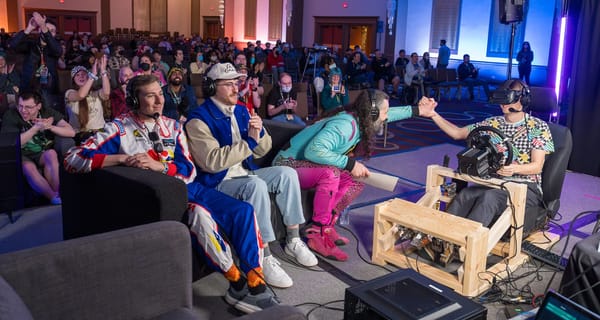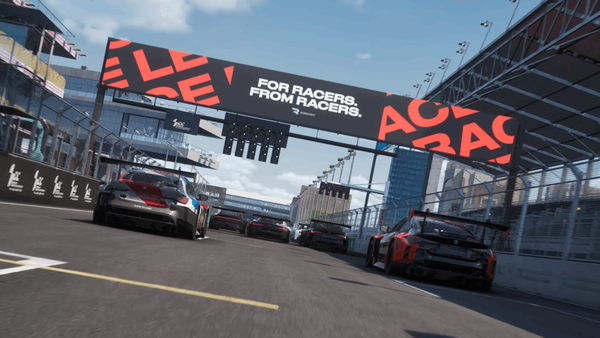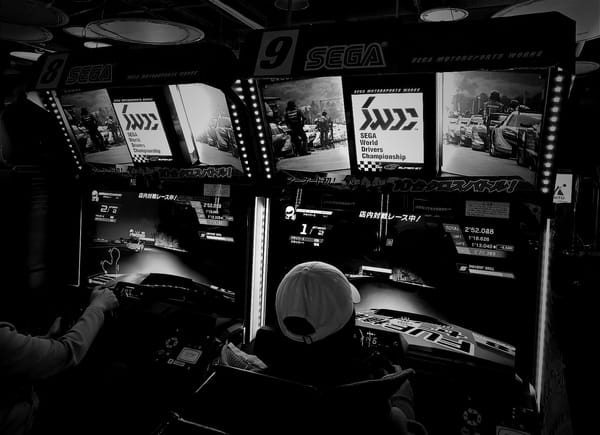In Memoriam: Project CARS 3
I can't think of any other racing game that should be talked about in death in this way: because I have never seen a racing game so utterly wronged in it's birth, and in life.
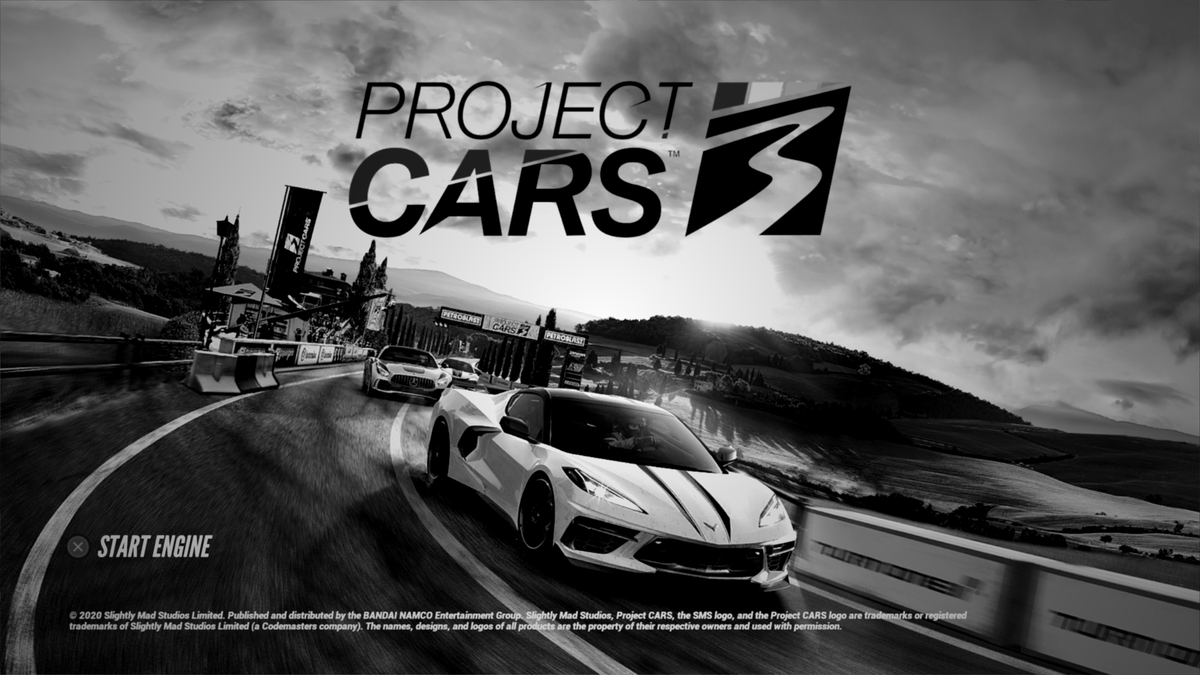
A frustrating and disappointing development that has taken place as games have become increasingly reliant on digital distribution is that games that heavily rely on licensed content will simply disappear when the licenses expire. In the physical media age, this simply wasn't an issue with the duration of the license likely being longer than the expected time-frame that the game will be on a store shelf. Racing and sports games are the most susceptible to this: with the yearly Formula 1 titles simply dissappearing after a few years, and the digital version of GTR2 - FIA GT Racing Game having it's Porsche and Ferraris blacked out from use unless you do some trickery with patches. But there are many more affected by this, and will continue to be affected by this.
If it didn't have a physical release you can find at a used game store, or you're unwilling to go to legally dubious means to get it, there is now a decade plus of racing games that are lost to the ether.
Another racing game was added to that list a month ago after five years of being available digitally with it also having a physical release. Ever since the announcement of it's delisting, paired with the upcoming release of Project Motor Racing, it was time to give this game it's due while also looking at the reality that it was seen in compared to what it presented itself as. I can't think of any other racing game that should be talked about in death in this way: because I have never seen a racing game so utterly wronged in it's birth, and in life. That game is Project CARS 3, and it deserved so, so much better.
The story of Project CARS 3 is a story of wanted perception in conflict with it's actual performative nature, and the outward disappointment in that nature that has long defined the game within the racing game discourse when that wanted perception was simply never going to happen. And I think it would be best to talk about what it did express. Racing games are like gender; it too is performative, but in how it expresses the act of racing and driving as a whole exists in a vast spectrum where it can go to the very extremes of aligning with reality or throwing everything out the window to where the thing that remains constant is the start and finish lines, and they're keeping score of it. What the game self-identifies as within the spectrum will always be weighed and measured on whether or not it did a "good" enough job of what it was trying to express, with this critique and analysis getting more extreme and more absurd the more rational and realistic the game is trying to express itself as; before going into whether or not it was a good video game if the extra critique is applicable. So, what did each of the three main Project CARS games express themselves as and where do the so-called problems come in with the third title?
The first two Project CARS games existed as far to that realistic end of the spectrum as had ever been seen on game consoles up to that point, with the exception of Race Pro on the Xbox 360. A dynamic track surface that changed with the weather, a tire model that kept track of temperature across multiple regions of the tire, dirty air, fully developed suspension articulation, and capabilities for full races across various disciplines with pit strategy was possible with the first two Project CARS titles performing this well enough if you had a steering wheel setup. The dev team presented both titles in this way from the very start, and both the hardcore player who gave feedback through development and the casual players who picked it up at launch understood and accepted the fact that, yes, this hyper-realistic conveyance was what PCARS 1 and 2 were expressing.
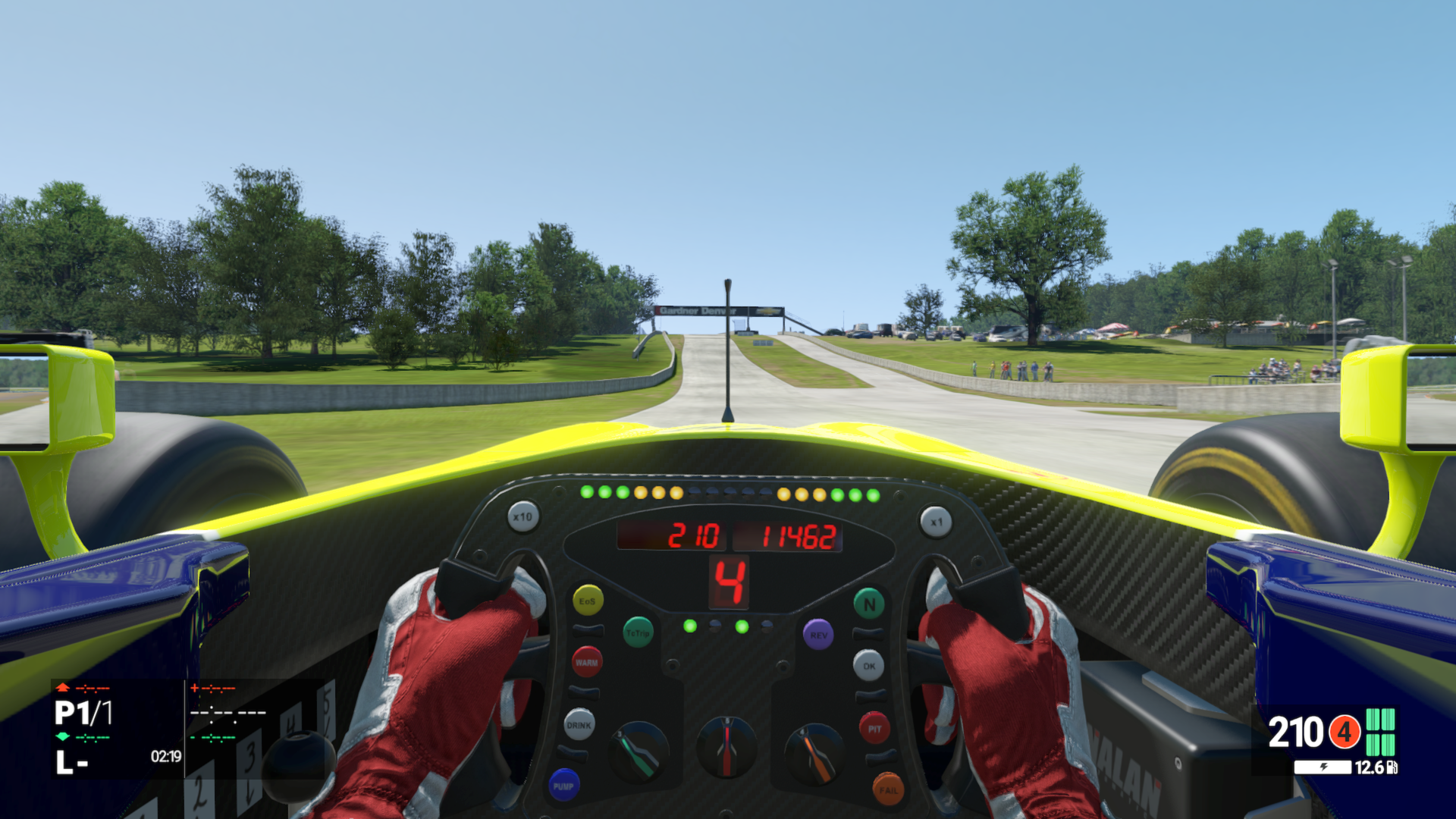
But going deeper into the games, they are frustrating as they didn't go the extra mile in their attempt to break out into the mainstream and failed in that part of their conveyance. They failed to adequately communicate with more mainstream players about what the car they're driving is doing, between the abysmal rumble support and tipsy and stiff exterior cameras. It gives the impression that the cars feel nervous, on edge, snappy in a way that doesn't inspire confidence or motivates the player to keep learning and improving. You have no idea where the limit is in these cars unless you've passed the additional barrier of entry and paid hundreds of dollars more for a steering wheel. The artificial intelligence meanwhile, were on the pace and can be adjusted to the player's ability, was all over the place in terms of how they interact with other cars and play it fast and loose with the track limits, at least in PCARS 1.
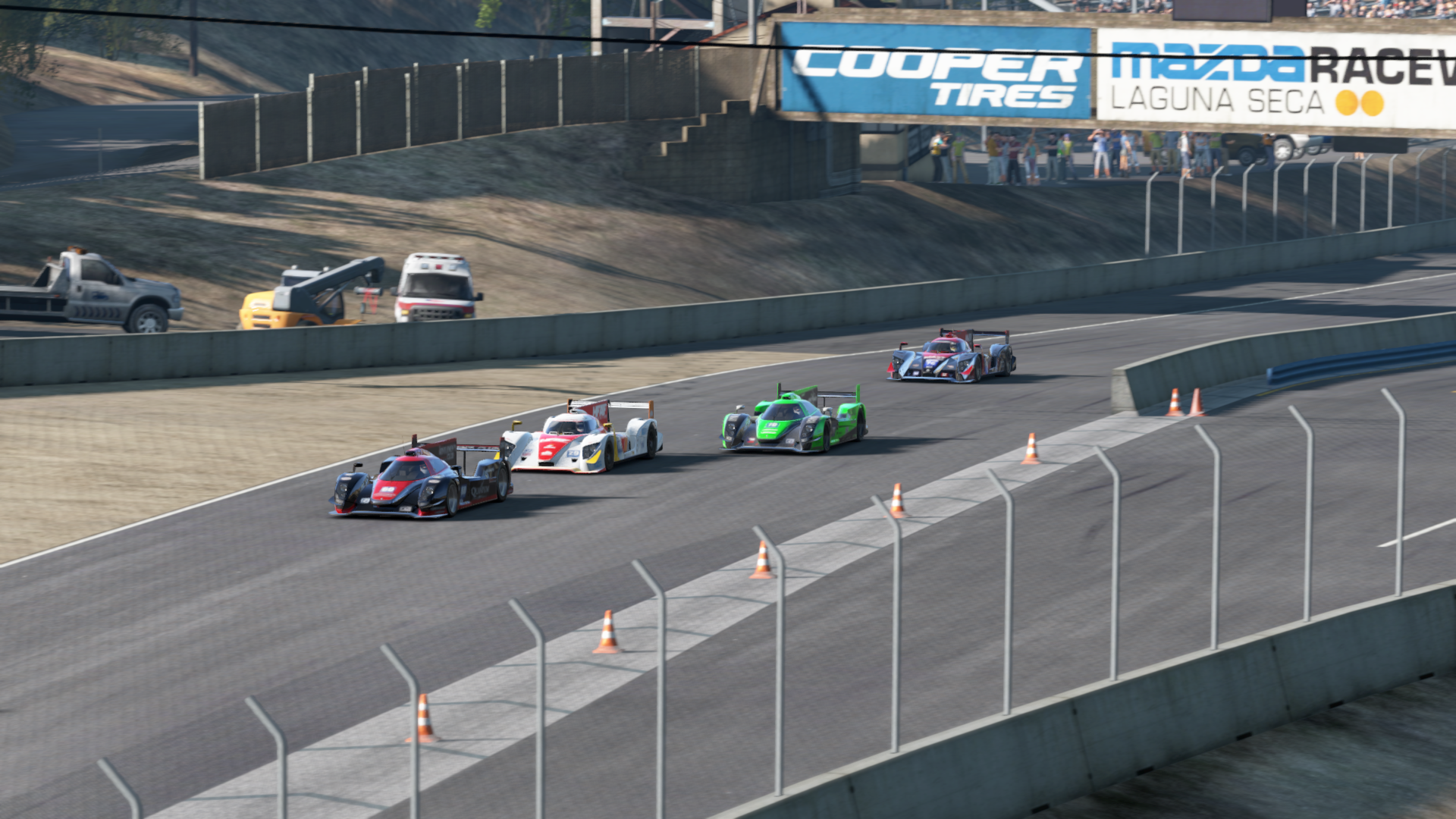
For all the success the first two titles had at expressing the idea that they were hyper-realistic and showing all that could be possible in a realistic and rational racing space, it failed to put that into practice outside the realm of the hardcore player where PCARS 1 and 2 was always preaching to the choir. They failed at expressing those things in the realm of a video game that had to do video game things, when that was partially the point of those two titles. They were meant to bring such kind of racing game expression fully to the mainstream of the genre, and fell short of the mark. Even with this reality that Project CARS 1 and 2 were merely good enough realistic driving games with advanced driving dynamics but subpar racing games with poor single player, they were both critical and financial successes. They were game-changers and moved the needle on what was possible in the realistic space on consoles for better, or for worse.
But when it came to Project CARS 3, there was this impression that one way or another that things had to be different. Either there had to be an actual attempt at a career mode worth playing, or that hyper-realistic expression from the prior two titles had to be scaled back. Project CARS 2 felt more like Project CARS 1 and a half in this regard, and now there was a concern of diminishing returns potentially looming from publisher Bandai-Namco if I had to speculate. The decision was made to make Project CARS 3 a good video game first; and to do that some things had to change, and the nature of the racing it was wanting to express had to change.
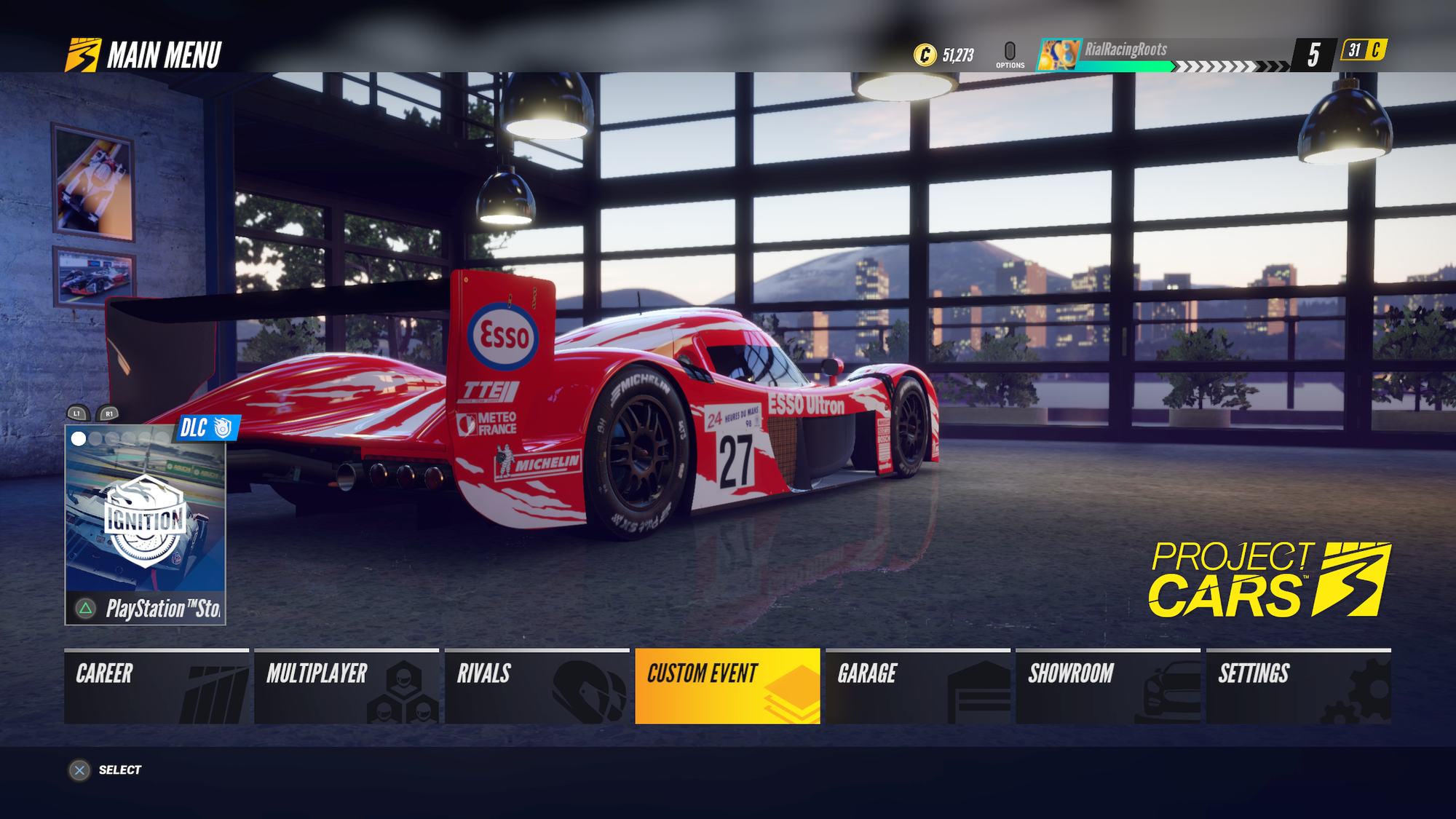
Through forum posts and three developer diaries you can read on the wayback machine, it was clear that PC3 was deliberately not going as extreme in terms of it's rational and realistic racing expression as it's predecessors. The big change from the back-end was that ironing out of the tire model with it now just being one tire that was able to adapt to the weather, with pit stops being completely eliminated from the equation and the effects of differing fuel loads on a car also being eliminated as a result. The ability to replicate a full race weekend and the nuance that it can have had been deliberately eliminated; while the game still drove in a realistic and rational sense but now with some elements removed that could be seen as a barrier of entry to a mainstream audience, even as the rumble capabilities had failed to be improved in the five years since Project CARS 1's release. And now there was no damage model to speak of, meaning you could bully and harass the much improved artificial intelligence without much consequence. It's single player campaign now aligned itself more with Driveclub and PCARS spiritual predecessor Need For Speed Shift in having primarily quickfire races with a more direct and positive progression system based on objectives with experience and money earned in races, rather than being an incredibly dry season mode with a basic ladder progression. If you want an in-depth, and more pragmatic look at what Project CARS 3 was, check out this video from LegendOP.
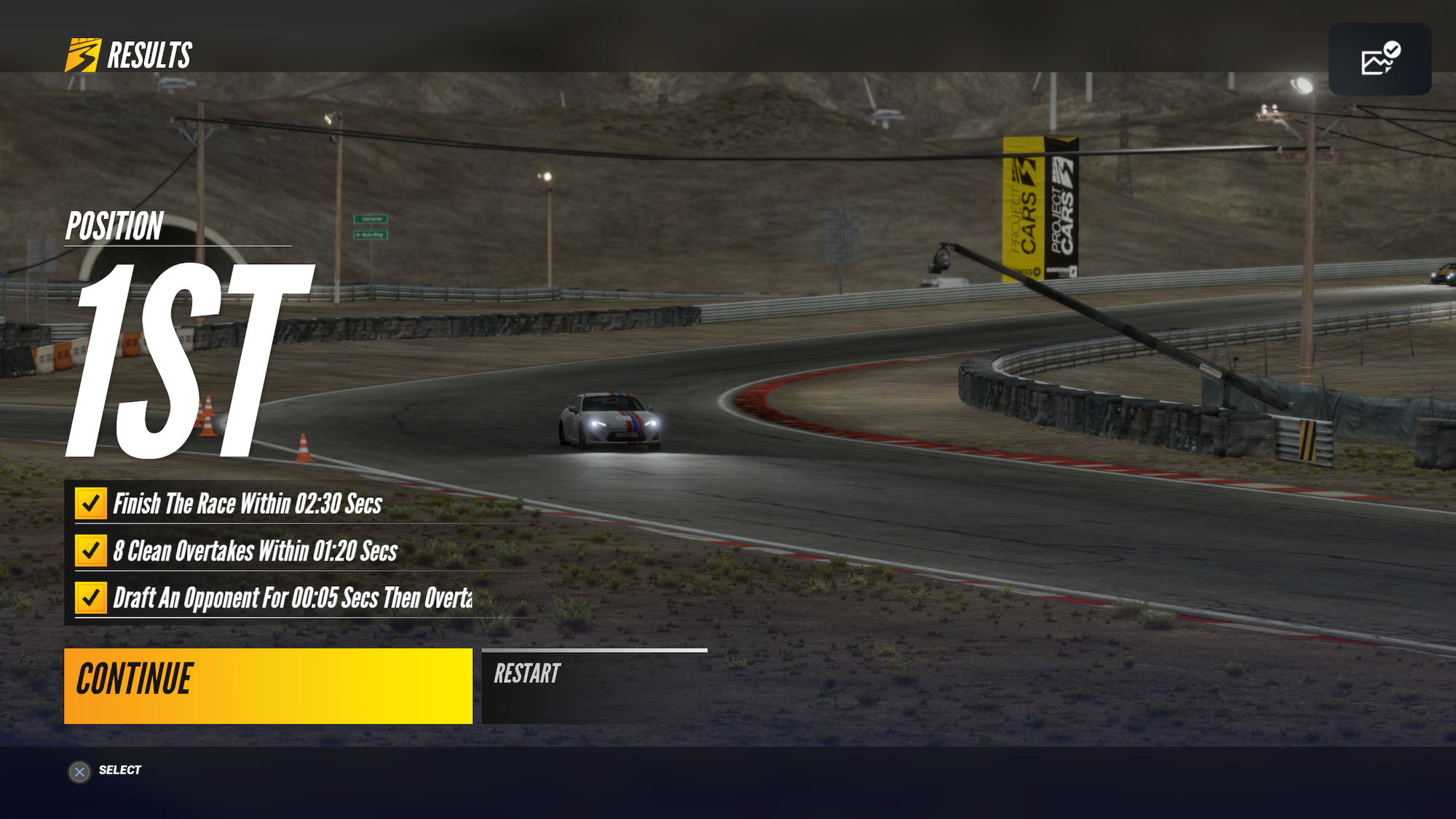
Project CARS 3's expression of it's racing condition is on the more realistic end of the spectrum, but it knows it can only go so far without compromising the fact that it wants to be a good video game first. The developers didn't shy away from that fact, and they made one of the best racing games that was released on the Playstation 4 and Xbox One generation of consoles as a result. But, Project CARS 3 was a critical failure compared to it's two predecessors. It was flat out rejected by those who devoted themselves to PCARS 1 and 2 when they felt like their input into past games was left by the wayside, and the experience that they forever want and can get from a multitude of other titles was deliberately no longer possible. They made it the game's problem that it wasn't their game, and associated the game being a so-called "simcade" or "arcade" game meaning it was either a bad racing game, or a bad video game outright because it wasn't what they wanted to be. And people listened to that, a lot of people listened to that, instead of making the decision to try and see for themselves what the game actually was, and instead merely listened to what it wasn't. The problem I always had with is was that they refused to listen to what was being told to them from the horse's mouth, and instead of leaving well enough alone they dragged the game through the mud and caused more harm to the franchise as a whole. This unwillingness to accept the game's performative nature as it was by those who lived and breathed the first two Project CARS titles ultimately led to the downfall of the franchise as a whole, and the closure of developer Slightly Mad Studios by Electronic Arts.
So, what was the problem with Project CARS 3? According to those who spend their time playing the majority of realistic titles in the space? Simply put, it's name. They don't see this as the Project CARS 3 they wanted, while they claim it was still wanting to be seen in the same light as to it's two predecessors. But the latter simply wasn't the case, that's not what it or the developers were expressing and having the game perform itself as. It still reveals itself as a racing game fully existing in the more rational space, but without the added bloat that was wanted to be there by devotees of it's predecessors. It's insane to think that battled hardened racers can be easily so duped by marketing jargon that was meant to target the mainstream and not them, and then act as if being duped wasn't their fault. Racing games within a franchise are allowed to change how they express themselves and how the racing and driving experience with each new release; and you are allowed to change how you, as a person, act and who you present and express yourself as in the same way as you change and grow.
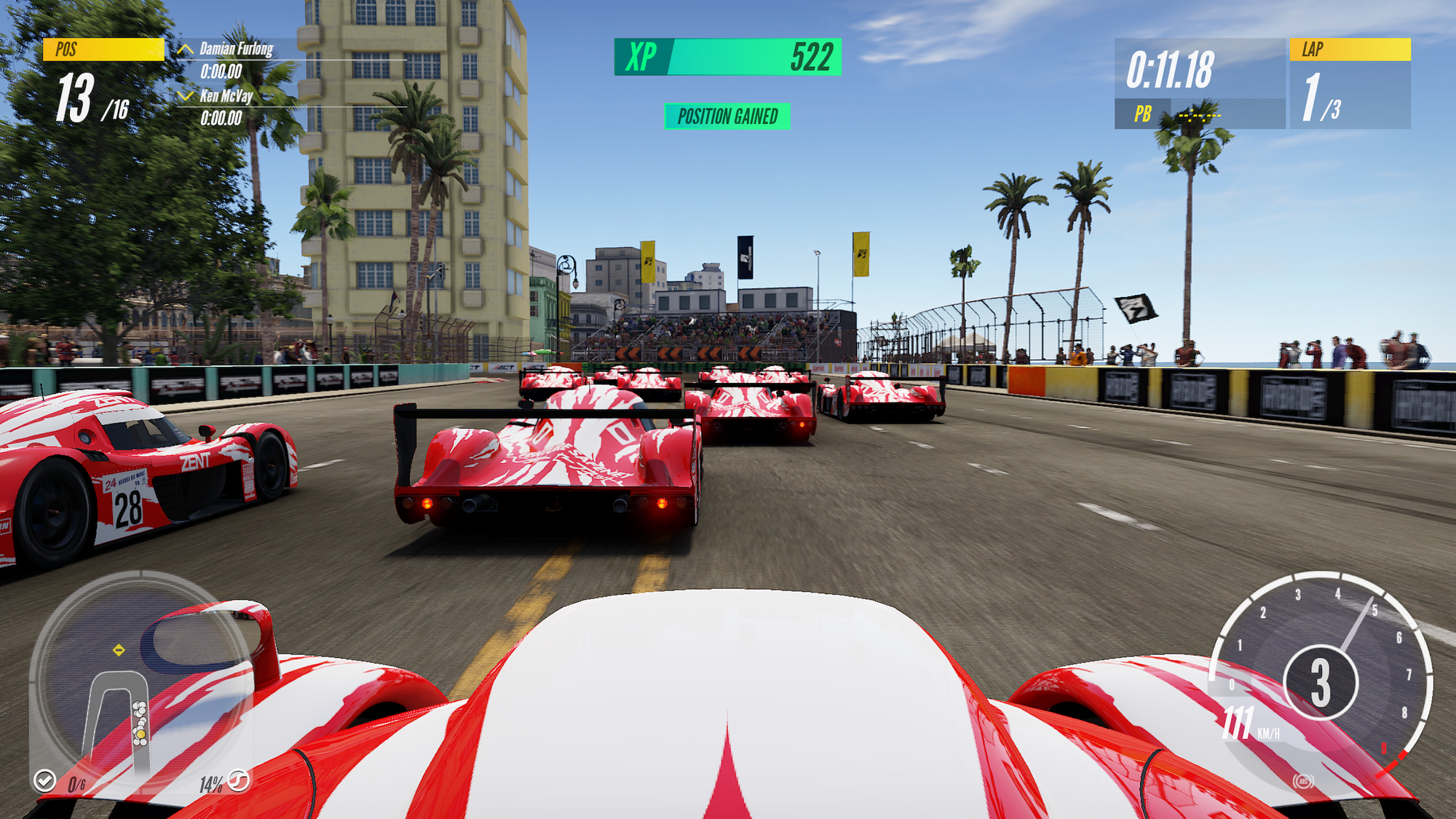
But here we are, looking at the autopsy of one of the most misunderstood racing games I have ever seen where the crime was simply trying to stand out on it's own two feet. Would it have landed better if it had a spinoff sub-title instead of being a main-line numbered entry? Possibly, it wouldn't change the fact it's the same excellent video game all the same; but perhaps the hardcore, borderline toxic realistic racing game players could have enjoyed their time better with a game that wasn't taking itself too seriously, instead of lamenting what it wasn't. But this all implies that the Project CARS 3 in their mind would have been something better, which I'm not so sure about.
But now, it's too late to turn the tide with it being delisted from being purchased digitally. Hopefully time will heal the wounds that were, in my eyes, largely self-inflicted by a user base stood upon ivory towers that likes to give itself physic damage from labels, marketing jargon, or over specific criticisms. And people who previously spat at the ground at the very mentioning of Project CARS 3 can give a great video game a try by understanding and accepting what it was actually trying to perform and express about itself.
But to do that, you have to fight against the fact that publishers don't want you to play older games anymore. And perhaps sailing the high seas in it's honor is the best way of showing respect to a fallen comrade. Godspeed Project CARS 3.


